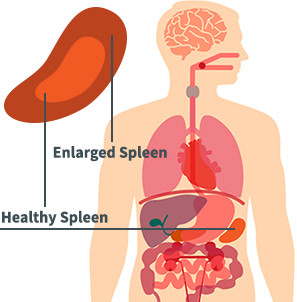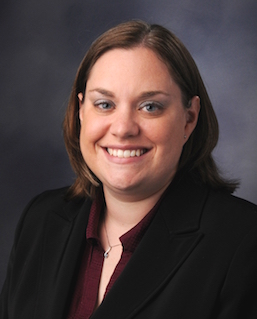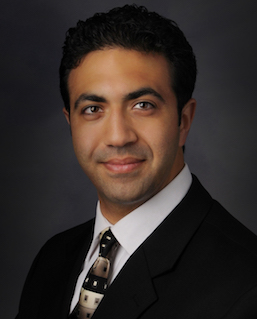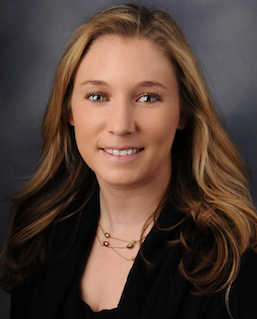About The Condition
 The spleen is an organ on the left side of your abdomen, next to your stomach. It is part of your lymphatic and immune system, filtering certain types of pathogens from your blood and playing an important role in preventing infection. It also stores red blood cells and platelets, the cells that help your blood clot. Spleen disorders can include:
The spleen is an organ on the left side of your abdomen, next to your stomach. It is part of your lymphatic and immune system, filtering certain types of pathogens from your blood and playing an important role in preventing infection. It also stores red blood cells and platelets, the cells that help your blood clot. Spleen disorders can include:
Spleen cancer. Cancers that may require removal of the spleen include lymphoma, Hodgkin disease and leukemia.
Spleen disease. Problems with your spleen can cause you to be more susceptible to infections. Your spleen can become enlarged, a condition called splenomegaly. When this happens, it sometimes begins to filter normal red blood cells along with irregular ones and traps too many platelets, causing your spleen to function abnormally. The spleen also can become overactive, a condition called hypersplenism. Other conditions that may require removal of your spleen include: blood clots, cirrhosis of the liver, diseases of blood cells, sickle cell anemia or trauma to the spleen.
Before Surgery
If you have spleen cancer, you may have radiation or chemotherapy prior to your surgery to reduce the size of your tumor. Please ask your physician about these treatments.
Before your surgery, you may be asked to:
- Stop smoking for one month prior to your surgery. Nicotine decreases blood flow, prevents healing after surgery and increases your risk of infection.
- Increase your activity. Aim for 30 minutes of walking or other aerobic activity daily to build strength.
- Improve your nutrition. Add protein supplements such as Boost or Ensure to help your body heal after surgery.
- Your physician may give you immunizations prior to surgery to help protect your body from certain pathogens.
- You will need to do a bowel prep before your surgery. You will receive more detailed information from your surgery team.
Please ask your physician about any additional steps you should take before your surgery.
Surgery
Our surgeons perform open surgery, as well as minimally invasive surgeries, for spleen disorders. Your surgeon will explain your particular procedure in more detail.
Minimally invasive surgery. Minimally invasive surgery is performed with laparoscopy or robot-assisted surgery using the da Vinci Surgical System.
- Laparoscopic surgery. Laparoscopic surgery requires only a few small incisions into which your surgeon will fit long, thin surgical instruments and a tiny camera. The camera will provide images to guide the surgeon during the procedure.
- Robotic surgery. Some laparoscopic surgeries may be performed using the da Vinci Surgical System. This robotic option gives your surgeon a magnified 3D high-definition view inside your body. The system also enables the surgeon’s hand movements to be translated into precise movements of small instruments inside your body.
Open surgery. Minimally With open surgery, your physician will make an incision at the site of the abnormality large enough so he or she can see and touch your internal organs while operating.
After Surgery
- You will be encouraged to walk to prevent blood clots, muscle weakness and constipation.
- You may experience constipation. If so, you may take a laxative such as Miralax or Milk of Magnesia.
- Ice may help to reduce the swelling for the first 48 to 96 hours. Then use heat to ease muscle soreness and relax tight muscles.
- Ask your surgeon before taking ibuprofen. A small amount of bleeding or drainage is expected from the wound during the first one or two days.
- You may shower one or two days after surgery, but avoid baths, hot tubs, soaking or swimming for two weeks.
- Always talk to your surgeon about weight restrictions and return-to-work options.
- Most patients who have had laparoscopic or robotic surgery are discharged the day following surgery.
- If you have had a splenectomy, you may remain in the hospital for up to a week, depending on your diet and overall recovery. Surgical drains will be left in place to remove extra fluid and to observe for leakage. Some people require a short stay in a rehab facility.
- Most people experience weight loss after surgery, so your physician may suggest nutritional supplements.
- You will be asked to see your surgeon in one to three weeks after surgery.
- If you notice a fever greater than 101 degrees Fahrenheit or drainage from your wound, let your surgeon know by calling 763.780.6699.
- You may be referred to an oncologist for follow-up after surgery.
If you have additional questions, please contact us at 763.780.6699.









